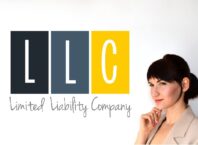Did you know that you can install a solar panel battery in a residential system? If not, that may be because they are rare–only about 4 percent of systems today have them.
The good news is that trend is changing, partly because backup batteries address the main deficit in solar power: consistent availability of power. The expectation is that more than half of all new installations by 2030 will come with a solar battery backup.
If you are thinking about a solar panel installation, or you’re interested in adding a battery to an existing system, keep reading. The information below will give you a breakdown of how solar batteries work and why you should consider one.
Contents [show]
How Do Solar Batteries Work?
Whenever your solar power system is generating more power than you need to run your home, the battery stores that power. The battery then discharges the power whenever the system cannot generate enough for your power needs.
The batteries use an inverter to store energy in direct current (DC) form and convert it back to alternating current (AC). This process uses energy, and one of the newest innovations in solar light batteries is the ability to limit energy lost in inversion.
Some solar batteries use lead-acid to store energy. But lithium-ion is the most common material used in a solar panel battery. Lead-acid batteries can be much cheaper than lithium-ion systems, but that is where the advantages end.
Lithium-ion technology offers greater power storage capacity, depth-of-discharge, efficiency, and lifespan. But the best solar battery is the one that meets your home’s energy consumption needs without going overboard. To learn more about the different types of solar power batteries available, contact a reputable installer, like Blue Raven Solar:
https://blueravensolar.com/blog/why-go-solar-advantages-and-disadvantages-of-solar/
What Are the Advantages of a Solar Panel Battery?
Currently, the vast majority of solar power systems cannot store energy. When the system generates excess power, it is sold back to the power company. During times when it does not generate enough power for your home, you get it from the power grid (you buy it from your utility).
There are several main scenarios when stored energy becomes important. The first is during any time when you are using more power than your system is generating. This could include any time, but almost certainly when you’re using electricity and the sun is not shining.
This is useful during peak hours when rates are the highest. These vary by season, but in general, are times when most people are using electricity, such as evenings (at home, cooking, watching TV, etc.).
Another instance when solar power batteries are beneficial is when the power grid is down due to storms or other unexpected events. Backup batteries allow your home to keep running without relying on your utility.
Learn More About Solar Panel Batteries
Now that you have an idea of the advantages of a solar panel battery, you can decide if it’s a good choice for your residential system. The technology will keep advancing, but now is a time when you can find a solar panel that will last, perform well, and is within your budget.
We hope this information was helpful to you. If so, be sure to take a look at some of our other technology and home improvement posts, as well as those on health, travel, and many other topics.












